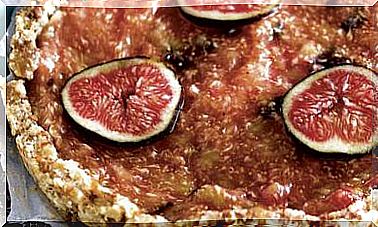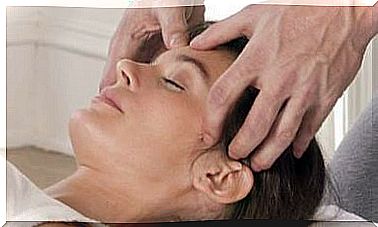Premenstrual Syndrome: What It Is And How To Treat It
The discomfort in the days before your period can be very intense. Behind there is usually a hormonal imbalance that we can correct.

The day is approaching when you have to lower your period and things do not seem to be going well. You swell, your head hurts, you feel especially discouraged … Sometimes only one thing happens to you, other times everything happens to you at once. Maybe it didn’t happen to you before, or it didn’t start so early or with such intensity. You are most likely suffering from what is known as “premenstrual syndrome” and I have good news for you: PMS is not something you have to accept as inevitable, because there are many things you can do to alleviate and prevent its appearance.
The estrogens are essential for the development of the female reproductive cycle, but too much of these hormones is the cause of multiple discomfort, both physical and emotional, that many women experience five to ten days before menstruation. And that excess of hormones can be regulated.
What is premenstrual syndrome?
By premenstrual syndrome (PMS) we understand a wide range of physical and emotional symptoms that begin during the second half of the menstrual cycle and stop when menstruation appears. The intensity depends on the sensitivity of each person and can range from a slight discomfort to seriously interfere with the daily life of the woman who suffers it.
The list of signs and symptoms that make up premenstrual syndrome is extensive: sadness and easy crying, irritability, concentration problems, anxiety, fatigue, joint pain, headaches, fluid retention, abdominal swelling, acne breakouts, breast tension … .
In fact, three out of every four women suffer from one of them, to a greater or lesser degree, before their period. In some, the symptoms are severe enough to interfere with their lives.
Causes and treatment of PMS
The cause of PMS is usually an excess of estrogens or hyperestrogenesis, but… what is this hormonal imbalance due to? How can it be corrected?
Below you will find some recommendations to correct the different hormonal imbalances that are behind the excessive presence of estrogens in your body. Always consult your doctor or a specialist before starting any treatment.
1. Progesterone deficiency premenstrual syndrome
It is one of the main causes of estrogen dominance. The symptoms that indicate a deficit of progesterone are diverse: short and irregular cycles; loss of brownish color between ovulation and menstruation; abdominal swelling; heavy menstrual flow throughout the cycle; hair loss; vaginal dryness; humor changes.
To increase the production of progesterone it may be useful to take some supplements or foods:
- L-Arginine: an amino acid that improves the vascularization of the corpus luteum, responsible for the manufacture of this hormone, and also increases the receptors for leptin, a protein secreted by adipose tissue that not only intervenes in the control of appetite, but also which acts as a regulator of the reproductive system. Recommended dose: 6 grams / day divided into three doses of 2 grams.
- Wild yam (Dioscorea villosa): it is used during the second phase of the cycle, taken as a supplement (500 mg of dry extract per day) or by applying it as a cream on the inside of the arms and legs for skin absorption, which prevents liver fatigue.
- Omega-3, zinc, vitamin B6 and antioxidants such as vitamin C (1,000 mg daily) and E (400 IU / day): maintaining good levels of these nutrients is also essential for the proper development of the corpus luteum. Make sure that your diet does not lack whole grains, nuts, chia, pumpkin and sunflower seeds, seaweed, as well as seasonal vegetables and fruits, all of them foods rich in these nutrients.
2. Premenstrual syndrome due to excessive estrogen production
The high production of these hormones is another cause. It occurs when there is an accelerated activity of aromatase, an enzyme that is involved in the manufacture of estrogens (estradiol and estrone) from the male hormone androstenedione (androgen produced from cholesterol).
The most common symptoms are premature menarche (before 12 years of age); a great facility to accumulate fat in hips, thighs and breasts; regular but very abundant and painful menstruation from the beginning; fluid retention, with consequent inflammation; fierce hunger, especially for sweets; migraines; tiredness; muscle or joint pain; anxiety, sadness or lack of motivation.
To modulate the activity of aromatase, the following strategies can help you:
- Increase the consumption of the following foods: flax seeds, sesame and chia, red onion, baked apples with cinnamon, forest berries with pomegranate and lemon zest, olives, plums, crucifers, alfalfa, turmeric, ginger, seaweed kombu, as well as taking an infusion of passionflower, licorice, cinnamon and green tea daily.
- Take abundant omega 3 and 6 fatty acids, in a ratio of 4: 1.
- Take supplements such as grape seed extract (1,000 mg in two daily doses) or berberine (two 500 mg capsules daily before meals), a vegetable alkaloid that helps reduce the production of triglycerides and cholesterol, improves sensitivity peripheral to insulin and metabolic syndrome, it is anti-inflammatory and regulates the menstrual cycle.
- Practicing intermittent fasting and performing physical activity while fasting also affects the reduction of estrogen synthesis.
3. Premenstrual syndrome due to impaired liver functions
A poor detoxification of estrogen by the liver results in an increase of these hormones in the blood, causing the same symptoms as if there is an excessive synthesis.
If the problem is in phase 1 of liver clearance, the signs are usually fatigue, increased lipoproteins, elevated GGTs, and signs of premature aging due to excess oxidative stress.
Taking foods rich in antioxidants as well as supplements of resveratrol, anthocyanidins, alpha-lipoic acid, quercetin, indole-3-carbinol and rooibos tea infusions helps to enhance this phase and transform estrogens (fat-soluble hormones) into water-soluble molecules. These intermediate metabolites are very unstable and need to bind to phase 2 enzymes to be permanently eliminated from the body.
The methodical and constant people with poor tolerance to stress, suffering premenstrual headaches and tend to anemia or suffering itchy skin often usually have altered methylation of the reactions of step 2 which eliminates estrogens, histamine, adrenaline and norepinephrine, among many other compounds. In this case, supplements that promote the excretion of these molecules can be of great help:
- A supplement of vitamins B9 (500-1,000 mcg / day) and B12 (500-2,000 mcg / day) methylated.
- The magnesium vitamin B6 (400-600 mg / day).
- The probiotics L. Reuteri , L. Planctarum , L. Rhamosus , L. Infantis and L. Longum ,
Another phase that may need improvement is sulfoconjugation. This is so when the predominant symptoms are chest tightness, hot flashes, diarrhea, stomach spasms, swelling of the hands and feet, joint pain, mucosal problems … For this it is advisable to take molybdenum (400 mcg / day during 6-8 weeks), vitamin A (50,000 IU / day), riboflavin (100-400 mg / day), cysteine (600-4,000 mg / day) and methionine (200-500 mg / day), as well as taking care of the intestine and treat, if appropriate, patency and / or dysbiosis.
Also include in your diet black radish, miso, azuquis, green beans, sesame oil or tahin cream, pumpkin seeds, buckwheat and cochayuyo seaweed. They are foods that activate the enzymes responsible for eliminating estrogens through sulfation. Instead, you should avoid oranges, garlic, onion, lettuce, apples and coffee, as they are inhibitors of these enzymes.
A comprehensive treatment
When PMS presents confusing symptoms that indicate the confluence of more than one of the aforementioned causes, a global therapy can be carried out that includes:
- First of all, a treatment for the balance of the digestive system: intestinal permeability, dysbiosis, reduction of the glycemic load …
- The lifestyle review : stress management, reduction of toxins, healthy diet, physical exercise …)
- In a second phase , grape seed extract can be taken , a compound that has the ability to activate the transcription factor Nrf2 that regulates the expression of numerous liver enzyme genes with antioxidant and detoxifying action.
- Then each case will have to be studied to adapt the diet and see if it is necessary to supplement with a more specific product.









